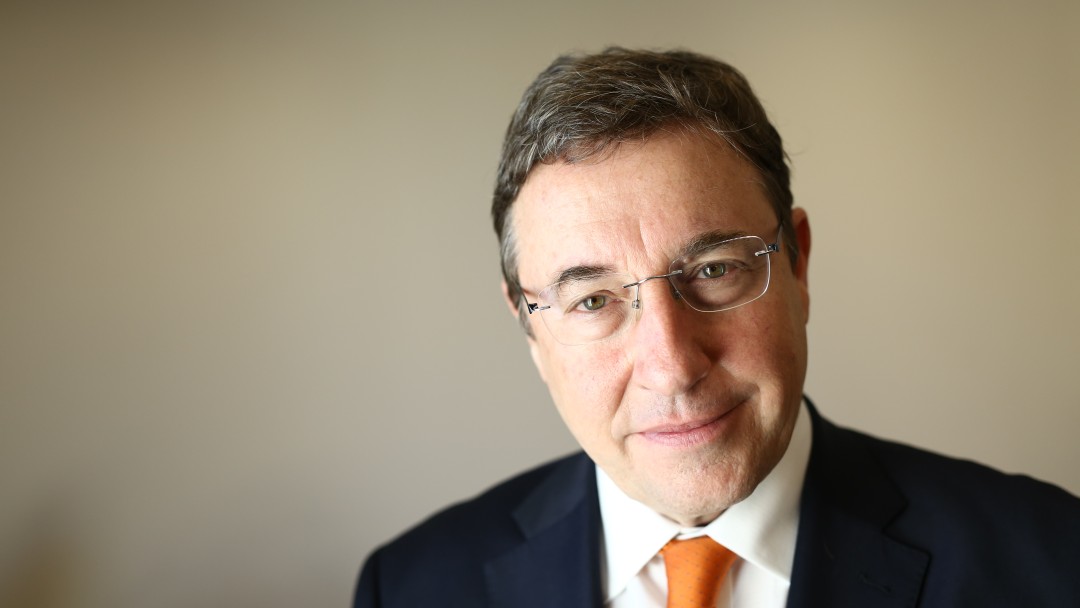News from 2019-07-18 / KfW Development Bank
Joining forces

Achim Steiner has led the United Nations Development Programme (UNDP) since 2017. Before that he worked as the Executive Secretary of the UN Environment Programme (UNEP) for ten years. In this interview, Steiner explains why a global organisation such as the UNDP is interested in closer cooperation with a national promotional bank like KfW.
What do you hope to achieve through the increased collaboration between KfW and UNDP?
The capabilities and strengths of KfW are an outstanding match for those of the UNDP. We are present in 170 countries, almost every state in the world, but we do not have the same expertise as KfW with regard to financing and capital markets. We are therefore very interested in collaborating with KfW in those topics which are KfW's core areas. How can we promote sustainable financing? How can we motivate the private sector and private investors to invest in Sustainable Development Goals (SDGs)? How can we design national capital markets so that regulatory policies take SDGs into account? These are just some of the questions we would like to address together with KfW.
Worldwide or for certain types of countries?
The issues have global relevance, although they apply particularly to the least developed countries, as the international financial world will not be arriving there in the foreseeable future. This means we need to help these countries to use their own private sector funds and capital reserves to a greater extent for development. In this context, our task is to understand how we can drive this process forward faster and more effectively. Through our closer cooperation with KfW, I hope that we can learn and experiment together and look for the best ways to pool our strengths.
Are there any more overlaps between the two organisations?
We have worked together very successfully in recent years, particularly in countries affected by crises, for example in Iraq, where we managed to bring millions of internally displaced persons back to their places of origin within six months. We achieved this thanks to a radical programme to restore basic services, including water, electricity and schools, so that the population could return from the transitional camps to their houses and apartments. This was an enormous task which we successfully achieved together.
So this cooparation is not entirely new...
We have now formalised what has already developed over the last few years, with the intention of intensifying it even further. Between 2016 and 2018, KfW contributed almost USD 400 million to UNDP programmes. A large part of this went to the programme in Iraq that I just mentioned, but we also cooperated in Syria, Lebanon, Libya and Malawi. In 2018, we even worked together for the first time in Asia, where we supported reconstruction in certain Indonesian provinces following an earthquake and tsunami.
What exactly have the two establishments agreed?
We have not only reached a general formal agreement on cooperation, but we have also discussed concrete knowledge-sharing measures. With this in mind, we have agreed that UNDP employees can work more intensively with their KfW colleagues. We want to improve institutional learning and the development of knowledge and instruments that can then be made available to the whole world of development.
What in particular do you appreciate about KfW?
They are a fast and effective partner. And they have high standards for their projects, which I also demand from UNDP. In general, I think that bilateral and multilateral organisations should not consider themselves to be separate universes, because they ultimately just follow different paths to support countries in their development.
The interview was conducted by Friederike Bauer

Share page
To share the content of this page with your network, click on one of the icons below.
Note on data protection: When you share content, your personal data is transferred to the selected network.
Data protection
Alternatively, you can also copy the short link: https://www.kfw-entwicklungsbank.de/s/enzBWrMC.CB5A
Copy link Link copied